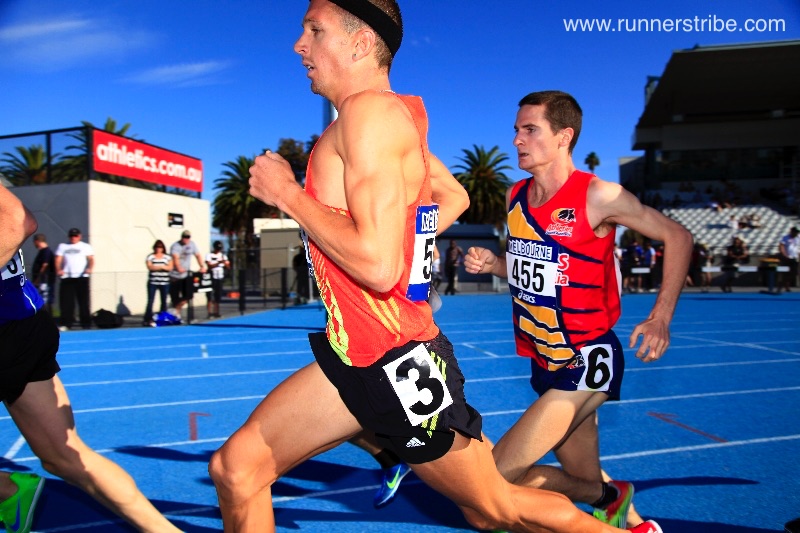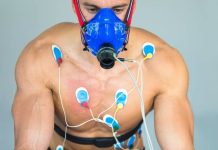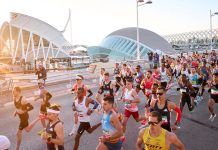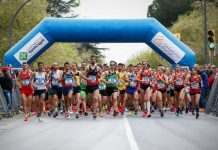Natural sleep patterns can greatly impact athletic success.
Originally published: Jan 29 2015 – 1:30pm
By: Chris Gorski, Senior Editor
(Inside Science) – When game time rolls around, athletes must produce the best possible performance no matter when the competition starts or when they prefer to rise and shine. But according to a new study, researchers may underestimate the importance of athletes’ body clocks to their performance levels.
It’s well known that people and animals have natural body clocks, or circadian rhythms. People’s body rhythms tend to fit into one of three general categories, called chronotypes, early, intermediate and late, said Roland Brandstaetter, a biologist at the University of Birmingham in the United Kingdom.
A person’s category is determined by a combination of genetic, environmental and social factors. In other words, there’s a biological reason why some people can’t sleep late and others can’t get up early.
In the new research, Brandstaetter and a colleague, Elise Facer-Childs, asked a collection of accomplished field hockey and squash players with different chronotypes to complete general fitness tests at six different times of the day. They found that each chronotype had a different pattern of performance, with the best and worst performances coming at different times. Most strikingly, night owls performed very poorly in the early morning, on average about 26 percent worse than their peak level.
A 26 percent difference is pretty extreme. In a world-class 100-meter race, the variation between first and last place is often less than five percent.
Brandstaetter was originally trained as a zoologist, and has long studied circadian rhythms of animals. A few years ago he began studying humans exclusively, including athletes who compete internationally. He thinks that previous research has not looked closely enough at the three circadian types and that lack of delineation has skewed the results.
Much past research has shown that athletes generally perform better in late afternoon or evening. Brandstaetter said his results show that the weak performance of late types, the night owls, can overwhelm the tendencies of early risers and intermediate types, and skew the whole group’s pattern. By breaking down people into different categories, he found that the peak performance time can differ by many hours, depending on the natural rhythms of the athlete. He suggested that athletes in many sports could benefit from what he called a circadian coach, who would help athletes harmonize their sleep type with the demands of their sport.
“If you are a late type, and whatever sport you do, you would probably always perform better in the evening. If you are an early type you would always perform better in the morning,” said Brandstaetter. “That simply means that if an early type had to run a marathon in the morning, then the person will have a better performance, a very good performance, very close to optimal performance, while if a late type has to do that, performance will be impaired.”
The research is published today in the journal Current Biology.
“What they found is absolutely fascinating. And it’s consistent with what we intuitively believe to be true,” said Dr. Charles Samuels, the medical director of the Centre for Sleep and Human Performance in Calgary, Alberta, Canada.
Samuels said that the research provides good insights, but that it’s too early to use the results for setting training schedules or strategies, or to apply them to additional contexts.
“They’ve done great work. The paper however, is making conclusions that are beyond what the research can justify,” said Samuels. “I think you can say it’s really, really good early work.”
Dr. Philip Skiba, the regional director of sports medicine at Advocate Lutheran General Hospital, in Park Ridge, Illinois, said he also found the researchers’ conclusions unconvincing.
“No one debates that circadian rhythm has an important role to play in terms of athlete performance. That is clear,” he said. “However, I don’t really believe in the way they assessed this.”
Skiba coaches elite athletes in a variety of sports, from the NBA to triathlons. He is familiar with circadian clocks and especially jet lag as important performance factors that can affect performance. He said that there are a number of factors other than the time of day that might influence the results of the tests. For example, athletes might have different levels of experience with the fitness tests used in the assessment, and that could affect the performance.
A more conclusive test, he said, would measure the athletes’ performance in tasks for which they specifically train, such as testing sprinters by asking them to run 100 meters at different times of day.
“You’d want to have as few variables as possible,” Skiba said.
Athletes often deal with long-distance travel and jet lag, among other time-related issues. They have strategies, training methods and determination to help them adjust. For early risers and night owls alike, training the body to peak at a specific time of day is an important consideration for top athletes.
For athletes to perform at their best at a specific time, you have to retrain their body clocks, said Brandstaetter. “That’s what our study clearly shows.”
Chris Gorski is a Senior Editor for Inside Science and tweets at @c_gorski.
















Stephen Dinneen: So if you are a late peak person from Australia flying overseas 3-5 days prior but have to do a early morning marathon overseas – due to the different time zones which makes it late Australian time…what happens?!